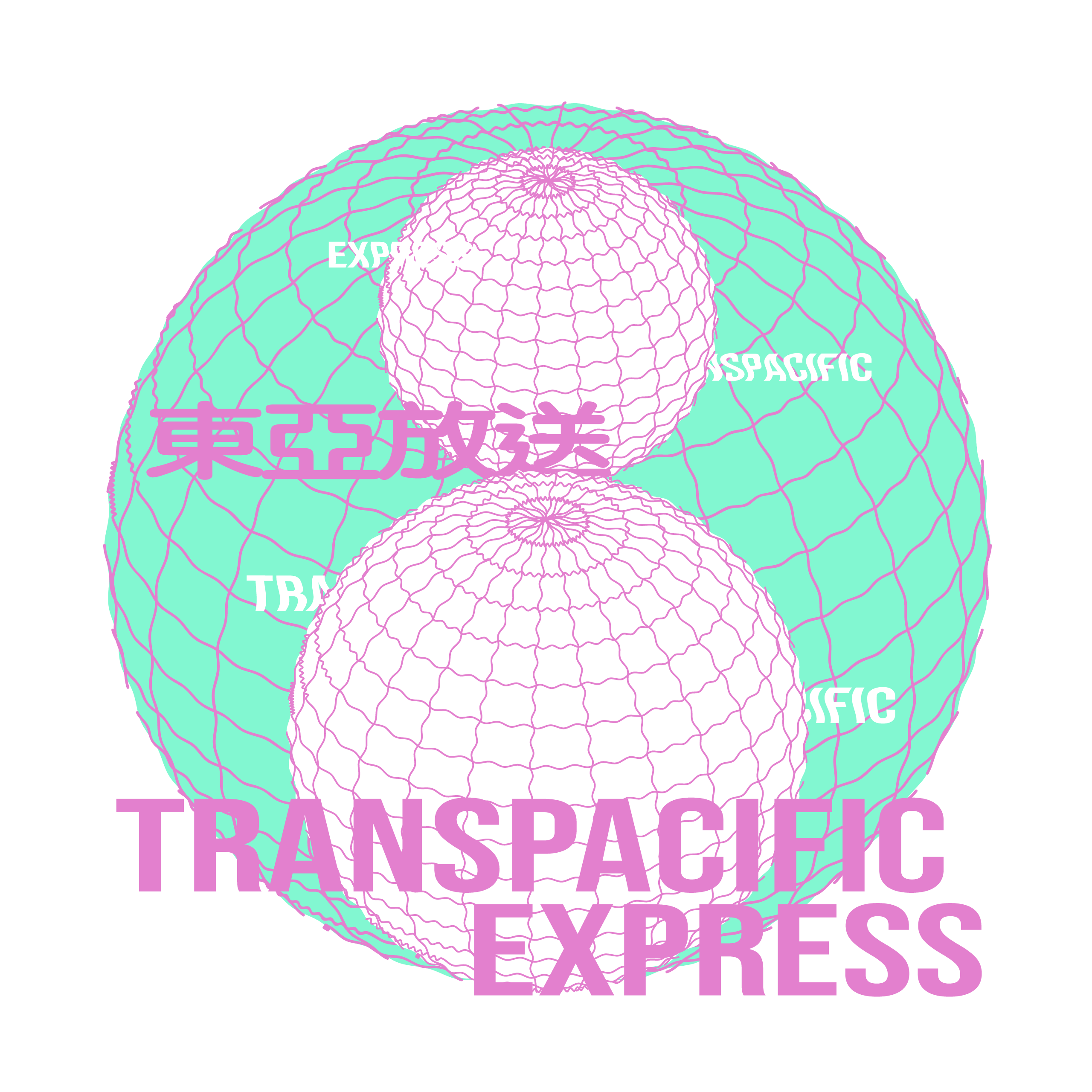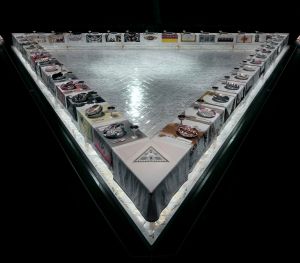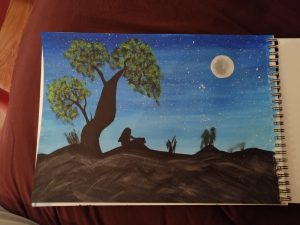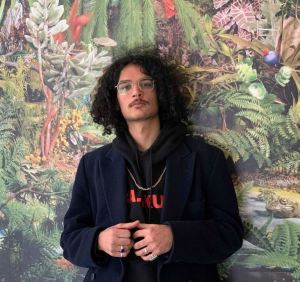Transpacific Express is a Montreal-based collective founded to promote the circumglobal sounds of East Asian hip-hop, R&B, boogie, disco, acid, and house. Launched in conjunction with a daytime cultural theory talk at Never Apart, “Before BTS: J-Disco and K-Hiphop in Perspective,” Transpacific Express is a culmination of two years of studying Asian culture and music by Montreal-based filmmaker and DJ, Brent Lin.
Make sure to check out the talk on Saturday, September 14th at Centre Never Apart. Then get your dancing shoes on to groove to the sounds of Japanese disco and Korean hip-hop, presented by DJs G BABY, G L O W Z I, and M0llygum at the dance party at Cafe Resonance. In the midst of the fab and rambunctious Pride festivities last weekend, Brent and I discussed the cross-cultural influences of East Asian popular music over bubble tea.
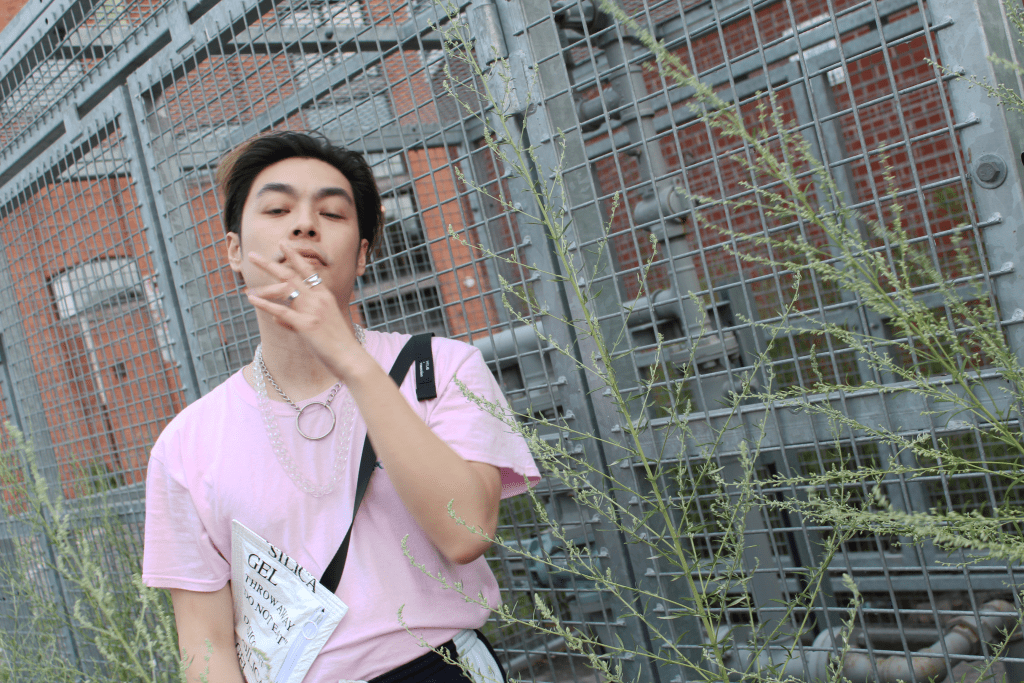
How did Transpacific Express come to be and what is the significance of the name?
I was not that deep into Asian [culture] before coming to McGill, but [it actually has] one of the coolest Asian Studies departments you can find. Everybody in my department either studies anime or K-pop. I actually met this person I’m still really good friends with, Siqi - unfortunately academia made her quit because she was sick of this shit. While we were hanging out in the program, we really got deep into Japanese disco, which I had some exposure to, and I was already DJ-ing a bit of that in Vancouver, but I had nobody to talk to about it - until I met her. So we really, like, fell into the rabbit hole there. She also introduced me to Korean hip-hop, and I [realized], woah, this shit is fly…
These genres started in America - Disco and Hip-Hop. When they move, you hear similar things, but it’s tuned a little bit differently, it has a different flavor - and it’s produced super well. We were both sucked into this and we thought, “You know what? We should start an event.” I was already DJ-ing in Vancouver, but I stopped before coming to McGill. I was putting mixes on N10.as in Vancouver, and thought this would be a good chance to get back into it. I call Transpacific Express an ‘oceanic transit system’ to think about music in a way that isn’t about J-disco or K-hiphop, or even just hip-hop and disco. A lot of [this music] is influenced by sounds across [both sides of] the Pacific.
You made this distinction between saying J-disco and Korean hip-hop, versus just disco and hip-hop - it’s a slippery slope to saying, “this is hip-hop, but it’s Japanese hip-hop.” What does that difference signify for you?
First of all, hip-hop in its very beginning, already has Asian influence. If you look at one of Afrika Bambaataa’s first mixes, it samples Yellow Magic Orchestra. The interesting thing is, the song they sample, ‘Firecracker,’ the one that goes (proceeds to mimic the song) is actually a rendition of this Martin Denny album, which is kind of like Americans doing Polynesian music in what’s called Exotica. If you really look back, you end up in the middle of the Pacific, in Polynesia. But is this the real Polynesia? Or is this like ‘Imagined Polynesia’ that is holding these two sides together? So the concept of Transpacific Express is that there’s a circulation and in the midst of that circulation is something you can’t touch, but maybe you can hear and feel.
This segues perfectly into my next question - East Asian popular music has gone through several reiterations of influence in modern North American music - but ironically enough, in the 70’s and 80’s, East Asian pop was itself heavily influenced by the latter, with lyrics often sung in English. In today’s age of the ‘SoundCloud producer,’ Japanese disco has made a prominent resurgence in Future Funk, which relies heavily on hyper-commercialized Asian aesthetics. How is Asian music evolving through this constant melange (and perhaps exploitation) of cultures?
There’s a reason why we didn’t call our event ‘Future Funk,’ and this is going to piss some people off, but I’m going to say it – Future Funk erases blackness, because they don’t really understand what they’re sampling. Funk like Parliament-Funkadelic was a key vehicle for the Afrofuturist imagination. Funk doesn’t need “future” in front of it because it was already futuristic . Saying ‘future funk’ is like saying ‘chai tea’. They’re sampling a lot of these J-disco tracks that were used in anime theme songs, which is great, but they’re not taking the next step into looking at where that originally came from in Black America, what that means, and how Asian artists, and especially the Japanese, after WWII, sympathized with Black people - because white Americans were their masters. Japan was militarily occupied by Americans. I want us to take this history a little bit more seriously.
What I’m tracing is a different lineage of J-disco that’s different from Future Funk. That’s why we’re not calling it ‘future funk or ‘city pop’. Also, the bodily aspect of this thing - this is not disco unless you can dance to it. Even though a lot of these [American underground] disco sounds end up in pop music, in 1980’s J-pop, it is still so danceable. Even if you just [listened to] the pop version of it. To call it J-disco is to emphasize that connection to [Black music], but also to its danceable nature.
There’s a very important concept called ‘techno-orientalism’. If you think about how Western culture thinks about Brown people - they’re a-modern, live in the past, [are] not civilized. But, a lot of the times, Western culture views Asians as hyper-modern. They’re futuristic, [even] a little bit dystopian because they’re so commercialized. This is the angle Vice Media loves, it’s like, “OMG, here are these Japanese cafes where you can rent families! Isn’t that so weird? We can’t believe they commercialize everything!”
[This is a very superficial view of Asian culture], or what in cultural theory we call ‘simulacra’. Simulacra is like a copy without an original, it’s always surface, and doesn’t have depth. This is the excess of capitalism. Anchoring J-disco and K-hiphop’s relationship to not only other, more underground genres, but also to K-pop - we can get away from the diminishing of Asian musical culture as ‘surface’. PC music [does this a lot]. They say, “Hey, we love J-pop, but let’s push it to the extent where it’s at a hyper-commercial extreme - where music videos look like people coming out of make-up advertisements. We [also] sell energy drinks…” If you’re only taking in that part of Asian culture, then you’re really falling into these tropes of techno-orientalism.
The story of East Asian pop music is correlated to technological advancement in Japan and Korea in the 80’s, and Japanese companies like Yamaha and Roland produced synths that are paramount to the signature ‘City Pop’ sound. What would you say is shaping the sound of Asian electronic music today?
YMO (Yellow Magic Orchestra) was one of the first groups to use synthesizers (the TR-808 rhythm machine) in pop music. Because they were involved in all these other underground projects, the use spread to the underground as well. Hardware is definitely an enabler for [the ‘city’ sound], and that was huge in the 80’s. If you’re talking about now, [look at the Korean scene]. Now it’s not so much about hardware as it is about this ambiguous relationship to K-pop. It’s a little like European avant-garde cinema’s relationship to Hollywood, “We’re gonna define ourselves against you, but without you, we wouldn’t be here either - just like the Academy Awards and Cannes.”
Without BTS, you probably might not have Peggy Gou. Why is it that Peggy Gou is getting all these fashion endorsements? Because she’s taken something that’s extremely important in K-pop culture and transferred it to the underground - this is looks. That’s what differentiates the J-pop scene from the K-pop scene. J-pop didn’t have very slick looks and choreography, and this intimate relationship with fashion. K-pop has that, and someone like Peggy Gou has taken that to Berghain.
An article in the Japanese Times described the term ‘City Pop’ as an outdated term for Western-influenced music, stating, “While it’s easy to dismiss the term as a generalized, convenient marketing gimmick to sell records and tote bags, it also suggests an outdated inferiority complex toward “true” urban life and to some extent Western music in general, begging the question, “Does it still need to be called ‘city pop’?” So my question is, what significance does introducing partygoers in Montreal to underground Asian music hold in moving away from trivializing Asian culture?
I think that article is on point in that there has been a history of discourse about J-pop that tends to trivialize, in this techno-orientalist way, that the term ‘city pop’ inherits. Introducing people to underground music in Asia isn’t to say, “Hey, we also have this good shit, not just J-pop,” it’s more about saying that pop music is very influenced by underground music and we can’t really understand one without understanding the other. Everybody has the ‘good shit’ - there’s gabber coming out of Indonesia! [We need to] break that ‘vinyl-only-bro’ bullshit [defining] underground music superiority.
You state in your intro message that Transpacific Express is “A dance party in Montreal where you can hear music you cannot hear anywhere else in this city. An underwater beach capsule riding the oceanic currents of the Pacific, where you can release today’s heartache and taste the dreams of a different future from the other side,” - I love this description, what are some key artists / sounds we should keep an eye out for?
A lot of futurism is related to space. Disco has always had a very intimate relationship to dreams of a different frontier, oppression, [and queer POC]. I think we need something different, because to me, that relationship with space as the future is really just a replication of settler colonialism - that’s how this continent was populated. Even if you look at Oceanic new worlds. Like Drexciya, they still have that militaristic frontier [undercurrent]. Drexciya is basically a mutant aquatic race of people descending from the African slaves thrown overboard during the Transatlantic slave trade. They come back with Poseidon-like power to wreak havoc on American slave masters. It still sounds to me like exiled people coming back [for redemption].
We don’t need that relationship. What we need is a recognition that the ocean, is like the ‘birth of all life’ - we’re not going to alienate it. There’s still too much of a separation between the ocean (the ‘good people’) and the land (the ‘bad people’). The idea with Transpacific Express as a capsule is that takes you to another realm, but this realm is not that separate [from us]. It draws from all sides. Instead of [separating the past and the future], we’re taking different [realities and] futures from all sides, and putting them together to make something new.
Artists to check out
- J-disco
- Hitomi Tohyama
- Hiroshi Sato - his collaboration with Wendy Matthews, a Montreal-born singer:
- K-hiphop OG’s

